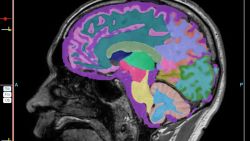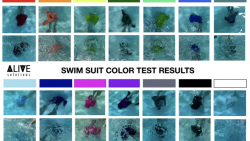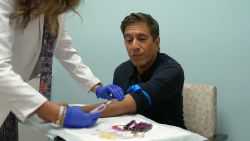Editor’s Note: Jonathan Reiner, MD, is a CNN medical analyst and professor of medicine and surgery at George Washington University. The views expressed in this commentary belong to the author. View more opinion on CNN.
Several years ago, at the end of a clinic visit, a long-time patient with end-stage heart disease who was nearing the end of his life asked me if it was OK to drink some wine.
The patient was a physician, and he knew what most lay people do not: Despite the widespread belief a little alcohol is good for your heart, it isn’t. I thought for a moment, and told him, “Only good wine.”
For thousands of years, alcohol, particularly wine, has been used for medicinal purposes. The ancient Greek physician Hippocrates promoted wine for various purposes, including reducing fevers and dressing wounds. Maimonides, the 12th century scholar, rabbi and physician also extolled the health benefits of wine in moderation. During Prohibition in the early 20th century, it was common for physicians to prescribe medicinal alcohol, which was legally dispensed at pharmacies, for ailments ranging from cancer to depression.
For many years it was thought moderate doses of alcohol were associated with a reduced risk of death, whereas higher amounts of drinking were associated with increased risk. And while there has been research to suggest a glass of wine a day can promote longevity or heart health, the consensus on alcohol’s salutary effects has started to change.
Humans metabolize alcohol mostly in the liver, where it is converted into acetaldehyde, a known carcinogen. Last July, a study published in Lancet Oncology estimated 4% of the world’s newly diagnosed cases of cancer in 2020, totaling almost 750,000 people, were related to alcohol use. The authors of the study found the cancer risk was highest for people who drank a lot, but even more moderate drinkers still had an increased risk of developing cancer.
In 2018, the Lancet published a different study of alcohol use in 195 countries and found the risk of all-cause mortality, and specifically dying from cancer, rises with increasing levels of alcohol consumption. The authors noted the way to minimize the risk was not to drink at all.
This past week, the World Heart Federation issued a policy stating no level of alcohol consumption is safe for the heart. The ironically-named Dr. Beatriz Champagne who chaired the advocacy committee which produced the report said, “In brief, our position is that studies showing a significant cardioprotective effect of alcohol consumption have by-and-large been observational, inconsistent, funded by the alcohol industry, and/or not subject to randomized control. Furthermore, any potential cardioprotective effect is negated by the well-documented risks and harms, rendering our judgment that no amount of consumption can be considered good for heart health.”
In addition to its carcinogenic properties, alcohol is also a cardiotoxin, and chronic heavy consumption can weaken the ability of the heart to contract, ultimately leading to potentially fatal congestive heart failure. Even brief episodes of binge-drinking can precipitate atrial fibrillation, a condition in which the heart rate increases and beats out of rhythm.
At a time when many Americans have increased alcohol consumption during the pandemic, how should one contextualize the World Heart Federation’s dry pronouncement?
Start by having an honest conversation with your doctor about how much you drink and how it can potentially affect your health. If you drink alcohol, do so because you enjoy it, not because you believe it’s good for you. The most recent data suggests it is not. And if you do enjoy alcoholic beverages, drink in moderation because there is abundant data showing the more you drink, the greater the risks to your health.
As for my patient who asked about drinking wine, several months after his death, a package was delivered to my house. It was brought by his wife, who was honoring his final instructions. In the box was a case of “only good wine.” There are still a few bottles left, and each time I drink one, I savor each sip, think of him, and smile.




















